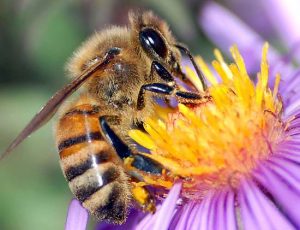As you can see we’ve had a little fun with the title for all you UB40 fans (are there many anymore?). However, we know that some people out there still have a tendency to react in the same way to finding bees in their garden as they would about finding a rat in their kitchen!!!

Introduction of Bees
Many of you will have recently seen that the humble Bee (really) has garnered plenty of press attention. Its plight has made headway in the national news and is even hot topic in the Houses Of Parliament. As
Caroline Lucas of the Green Party recently pointed out a significant number of Bee species across Europe is under the threat of extinction which could have disastrous consequences on the world around us.
The Role of Bees
It might be one of the things that we learn in Primary School but it’s always worth reiterating. Bees perform the act of Pollination. Bees collect proteins found in pollen from flowers which they collect to feed to their offspring. As part of the process this pollen collects on the bees outer body and is transferred to other plants, allowing pollination to take place in the process and flowers to grow.
If you take a moment to think about this, and what we would do without them look at your plate. Those vegetables, nuts, anything that comes from some kind of plant is pretty much reliant on the bee to provide its pollination services.
What happens if we have no bees?
Then you’ll starve. As drastic as it sounds some believe that this would be the case. On the basis that the best economists in the world couldn’t predict the banking crisis ten years ago it would be pretty difficult for scientists to predict the exact outcomes of a fall in bee numbers. However, many believe that the global population would see food supplies cut by about two thirds if bees were made extinct. Imagine the consequences of that on the human race.
No bees, no plants. No plants what do animals eat? At the top of the food chain sit the humans wondering what happened.
What’s impacting the bees?
There are lots of things impacting on the plight of bees. Some say the falling number of flower meadows in the UK have caused a dramatic decline and global warming in general hasn’t helped.
How can Joe Public help?
There are a wide range of things we can all do to be more considerate. Planting bee friendly flowers in our gardens such as lilacs, lavender and wisteria can provide the right habitats. As we all do as well try to be clear about where you buy your honey products from, look out for local, sustainable, authentic and ethically produced honey where possible
